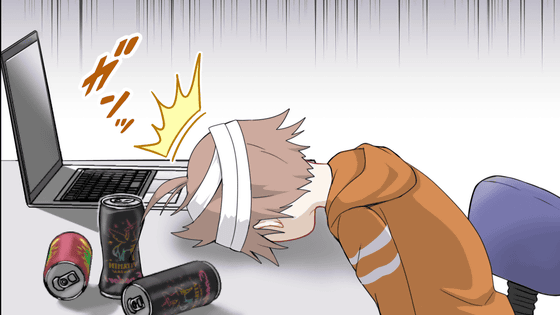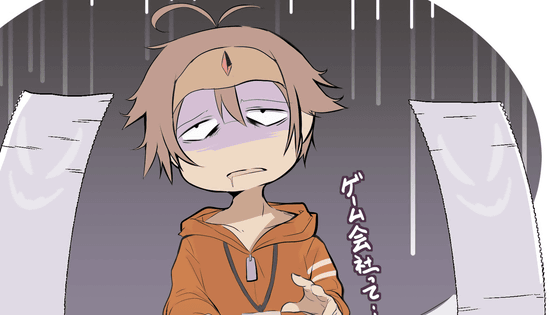Game companies are prone to massive layoffs, but Japan is the exception, but the working conditions are far from ideal

by
From 2022 to 2023, major IT companies such as Google , Amazon , and Microsoft continued to lay off 10,000 people, and Disney and GitHub also restructured 3% to 10% of their employees, among other large-scale layoffs. While layoffs are being implemented at various types of companies, serious layoffs have been continuing worldwide, especially in the gaming industry, since around 2022, with the few exceptions being Japanese game companies. Despite the lack of large-scale layoffs and even a large increase in wages , 'that doesn't mean Japan is close to a worker's utopia,' points out The Verge, an American technology news site.
How Japan has avoided the gaming industry's persistent layoffs - The Verge
https://www.theverge.com/24191650/nintendo-sega-from-software-japan-video-game-layoffs

According to Game Industry Layoffs , which keeps records of layoffs in the game industry, about 8,500 game-related workers were laid off worldwide in 2022, about 10,500 in 2023, and 10,800 in the first six months of 2024 alone. The sharp increase in the 2024 figure is largely due to Unity's layoff of 25% of its employees in January 2024 and the layoff of 1,900 employees at game makers Activision Blizzard and Xbox, which Microsoft completed its acquisition of in October 2023.
Microsoft lays off 1,900 Activision Blizzard and Xbox employees - GIGAZINE

According to video game reporter Stephen Totilo, the unemployment rate in the game industry is particularly notable in the United States, where the national average unemployment rate is about 4%, while the unemployment rate in the American game industry is 9%, more than twice as high. The unemployment rate in the game industry is high worldwide, but The Verge cites the 'Japanese game industry' as one of the few exceptions.
Japanese game companies have rarely laid off workers en masse. On the contrary, more and more companies are increasing salaries and investing in human resources, such as Sega announcing a 30% salary increase from July 2023, Koei Tecmo increasing the average base salary by 23% and raising the starting salary for new graduates to 290,000 yen in 2022, Nintendo announcing a 10% wage increase at its financial results briefing despite its sluggish financial reports, and Capcom recently announcing a 27.7% increase in starting salaries for college graduates from April 2025 as an 'investment in the human resources that will support the company's future.'

by
Regarding investment in human resources, FromSoftware President Hidetaka Miyazaki said in an interview with foreign media PC Gamer in June 2024, 'As long as this company is my responsibility, I will not allow layoffs like those happening around the world to happen. I think it was Iwata Satoru , former president of Nintendo, who said , 'People who are afraid of losing their jobs are afraid of creating good things.' I completely agree.'
Peter Matanle, who studies Japanese employment at the University of Sheffield in the UK, points out, 'Japanese employment law certainly protects employees in terms of stability and continuity of contracts. Japan has a history of courts ruling in favor of workers and labor unions over companies' employment rights, and the particularly important 'principle of unfair dismissal' states that 'employers cannot simply fire employees.' Therefore, unlike in other countries around the world, it is not possible to 'cut costs with large-scale layoffs in order to inflate figures in quarterly reports.''
On the other hand, in the United States, a legal principle called ' at-will employment ' is applied, which states that 'if an employee has an unrestricted right to quit, the employer has the right to fire the employee, and an open-ended employment contract can be terminated at any time, for any reason, or for no reason, by either the employer or the employee.' This is why there are so many layoffs in the United States and so few in Japan. In fact, in 2014, Nintendo cut the salaries of its executives, including then-president Iwata, to avoid layoffs, while firing 320 employees at its European branch, and Square Enix fired a large number of employees in its American and European offices in May 2024. Matanru emphasizes that Japanese labor laws are what protect Japanese workers.
In addition to labor laws, Matanl said there are also big differences between Japanese and Western managers in terms of 'ethical accountability.' Japanese organizations tend to be run with a long-term perspective, and are more concerned with pleasing employees than shareholders, and corporate executives are often promoted through long-term employment. On the other hand, in the United States, corporate executives are often outsiders to their respective industries, and it is common for them to change jobs frequently, to the point that it is considered advantageous to change jobs every few years. This is why Japan values its employees and prioritizes salary cuts for executives over layoffs, while the United States prioritizes announcements to shareholders and takes on large-scale employee cuts.

by The part-time life of a hero and a corporate slave
In Japan, there is less worry about being suddenly fired due to layoffs, but The Verge points out that 'that doesn't make Japan a utopia for game workers.'
Liam Edwards, co-founder of Kyoto-based indie game studio Denkiworks , talks about his experience working six days a week, 12 hours a day when he started working at Q-Games , a Japanese game company known for games such as Star Fox . Edwards says that while most of the foreign staff complained, Japanese employees were used to such working conditions and rarely complained.
Jake Kazdal, co-founder of 17-BIT , a game company with studios in Seattle and Kyoto, said of his experience working at Sega in the late 1990s and early 2000s, 'My only complaint about that was that we were working 24/7. That was the norm in Japanese studios.' He noted that the harsh working conditions at Japanese game companies have been going on for many years.

by The part-time life of a hero and a corporate slave
Japanese game companies also rely on temporary contract and temp workers, who have no job security, and in some cases, staff reductions that don't count as layoffs are made by not renewing their contracts.
Still, it is believed that workers in the Japanese game industry tend to be valued. Veteran Japanese game industry analyst Serkan Toto has analyzed that 'Japan's population has been declining for a long time, which is driving up demand for worker services,' and that 'Japanese is spoken by fewer people around the world than English, so the high hurdle to outsourcing worker roles could be a benefit to workers,' and points out that 'Japan's game industry has the quirks of a country with its own game culture, its own business culture, and its own closed game company ecosystem. Japan can move forward at its own rhythm.'
Related Posts:
in Game, Posted by log1e_dh







